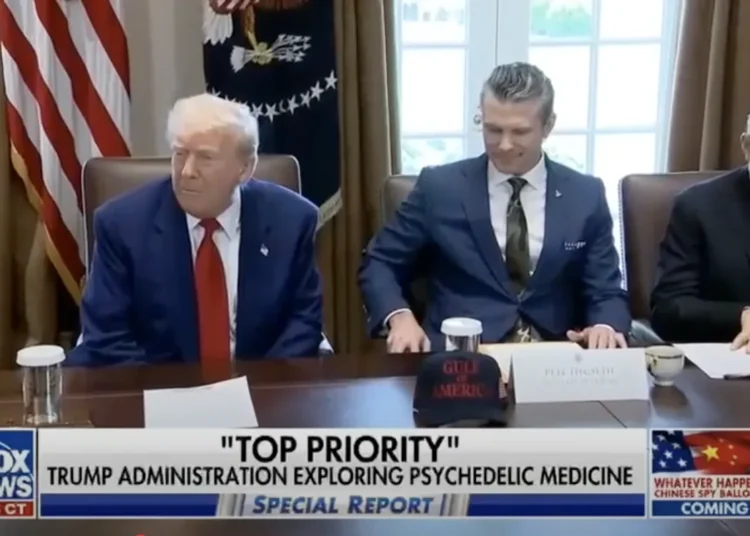In a development few would have predicted just a few years ago, the Trump administration has voiced support for the exploration of psychedelic drugs as a potential treatment for PTSD, depression, and anxiety. The news, covered in a recent Fox News report by correspondent Alexander Hoff, marks a dramatic shift in U.S. federal attitudes toward substances once associated solely with counterculture and criminality.
Watch the full report on YouTube here
Government-Led Momentum Toward Psychedelic Medicine
“We’re opening up the possibility of psychedelic treatment. This is a top priority for this FDA in this administration,” said a government representative in the segment.
For a substance class that has been illegal for decades, the change is nothing short of historic. The Trump-era FDA demonstrated a willingness to fast-track clinical research, expedite drug approvals, and support a regulatory structure that could bring these therapies into mainstream medicine.
Veterans Leading the Push for Change
Retired Army Sergeant Jonathan Lubecki, a vocal advocate for psychedelic therapy, shared a personal and powerful testimony.
“I had my first suicide attempt 60 days after I got back from Iraq… I’ve only taken [MDMA] three times… I haven’t had PTSD since.”
Lubecki participated in a clinical trial for MDMA-assisted therapy. The results were profound: LICOS, the company behind the trial, reported an 86% reduction in PTSD symptoms among participants.
FDA Caution and Industry Response
Despite the promising results, the FDA rejected LICOS’s New Drug Application in 2023 due to concerns over the study’s methodology and lack of comprehensive reporting on side effects.
Kimberly Witsac, a drug safety advocate, cautioned:
“Once it’s on the market, it’s kind of too late… You can’t put the genie back in the bottle.”
This highlights the challenge: balancing urgency for treatment with public safety in a rapidly evolving therapeutic frontier.
Cybin and the Future of Psychedelic Therapeutics
Doug Drysdale, CEO of Cybin Inc., remains optimistic about the sector’s future:
“We could see, three, four, or five years from now, these treatments being readily available for patients to break free from their depression.”
Cybin is one of several biotech companies betting on a new future for mental health treatment. While psychedelics remain Schedule I substances, the rising public support and shifting regulatory landscape may soon open the floodgates for innovative treatment options.
Investment Implications
For investors and small-cap watchers, the psychedelic sector represents a high-risk, high-reward frontier. With leading candidates like Cybin and others progressing through clinical pipelines and legislative winds turning favorable, this is a space worth watching closely.
Disclaimer:
The authors of this article may hold a position in Cybin Inc. or other companies mentioned herein. This content is for informational purposes only and does not constitute investment advice. Always conduct your own due diligence before making any financial decisions.













